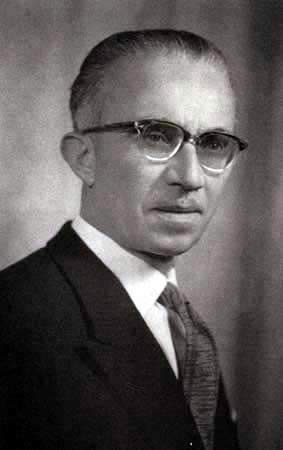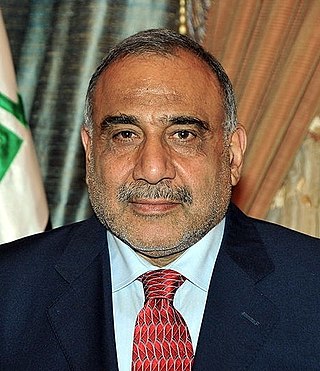Iraq is a federal parliamentary representative democratic republic. It is a multi-party system whereby the executive power is exercised by the Prime Minister of the Council of Ministers as the head of government, the President of Iraq as the head of state, and legislative power is vested in the Council of Representatives.

The Republican People's Party is a Kemalist and social democratic political party in Turkey. It is the oldest political party in Turkey, founded by Mustafa Kemal Atatürk, the first president and founder of the modern Republic of Türkiye. The party is also cited as the founding party of modern Turkey. Its logo consists of the Six Arrows, which represent the foundational principles of Kemalism: republicanism, reformism, laicism (Laïcité/Secularism), populism, nationalism, and statism. It is currently the second largest party in Grand National Assembly with 128 MPs, behind the ruling conservative Justice and Development Party.

The Iraqi Islamic Party is the largest Sunni Islamist political party in Iraq as well as the most prominent member of the Iraqi Accord Front political coalition. It was part of the government of Prime Minister Nouri al-Maliki and is part of the current government of Haider al-Abadi since 2014. Osama Tawfiq al-Tikriti succeeded Vice-President Tariq al-Hashimi as the party's secretary-general on 24 May 2009, who was succeeded in July 2011 by Ayad al-Samarrai.

Nazim al-Qudsi, was a Syrian politician who served as President of Syria from 14 December 1961 to 8 March 1963.

The Council of Representatives is the unicameral legislature of the Republic of Iraq. According to the Constitution of Iraq, it is the lower house of the bicameral legislature of the country. As of 2020, it comprises 329 seats and meets in Baghdad inside the Green Zone.

Governorate or provincial elections were held in Iraq on 31 January 2009, to replace the local councils in fourteen of the eighteen governorates of Iraq that were elected in the 2005 Iraqi governorate elections. 14,431 candidates, including 3,912 women, contested 440 seats. The candidates came from over 400 parties, 75% of which were newly formed.
Parliamentary elections were held in Iraq on 20 October 1930 to elect the members of the Chamber of Deputies. For every twenty thousand male citizens, one Member of Parliament was elected to the Chamber of Deputies (Majlis an-Nuwwab), the dominant chamber of Parliament over the Senate. It was the third election since the establishment of the parliament.

Parliamentary elections were held in Iraq on 12 May 2018. The elections decided the 329 members of the Council of Representatives, the country's unicameral legislature, who in turn will elect the Iraqi president and prime minister. The Iraqi parliament ordered a manual recount of the results on 6 June 2018. On 10 June 2018, a storage site in Baghdad housing roughly half of the ballots from the May parliamentary election caught fire.

The Abdul Mahdi government was the government of Iraq, headed by Prime Minister Adil Abdul-Mahdi. It was approved by the Council of Representatives on 24 October 2018 and followed a general election in May 2018. The United Nations described the formation as an "exemplary peaceful transfer of power".
Elections to a Constituent Assembly were held in Iraq between 24 October 1922 and 25 February 1924, electing the country's first parliament. The Constituent Assembly was elected to draft a constitution, legislate a law for general elections, and ratify the Anglo-Iraqi Treaty of 1922.
Parliamentary elections were held in Iraq in 1928, with the final day of voting on 9 May, to elect the members of Chamber of Deputies. They were the second elections under the 1925 constitution. There were many complaints about the integrity of the elections and the way the government handled them, with some candidates collating evidence of vote manipulation. The opposition Independence Party and Iraqi National Party wrote a letter to the British Prime Minister complaining about the Iraqi government's violation of electoral law, demanding an investigation, and offering to pay for its cost. Nevertheless, the newly elected council convened on 13 May 1928 and elected Abdul-Aziz Al-Qassab, the interior minister in Al-Saadoun government, as Speaker.
Parliamentary elections were held in Iraq in 1933 to elect the members of the Chamber of Deputies. Although the Government Bloc led by incumbent Prime Minister Naji Shawkat won the most seats, it quickly disintegrated after the elections, allowing Rashid Ali al-Gaylani to become prime minister.
Parliamentary elections were held in Iraq on 6 December 1934 to elect the members of the Chamber of Deputies.
Parliamentary elections were held in Iraq on 4 August 1935 to elect the members of the Chamber of Deputies.
Parliamentary elections were held in Iraq between 10 December 1936 and 20 February 1937 to elect the members of Chamber of Deputies of Iraq.
Parliamentary elections were held in Iraq on 18 December 1937 to elect the members of Chamber of Deputies.
Parliamentary elections were held in Iraq on 29 April 1939 to elect the members of the Chamber of Deputies.
Parliamentary elections were held in Iraq between 21 November 1946 and 10 March 1947 to elect the members of the Chamber of Deputies.

A referendum was held in Mandatory Iraq between 16 July and 11 August 1921 to determine the form of government and head of state.

Between the parliamentary election in October 2021 and October 2022, there was a political crisis in Iraq, with members of the Council of Representatives of Iraq being unable to form a stable coalition government, or elect a new President. Basic government services such as the civil service and military continued functioning, but the national political system was in deadlock including in respect of almost all major spending and taxation issues. On 27 October 2022, the government of Prime Minister Mohammed Shia' Al Sudani was approved by the Council of Representatives.









